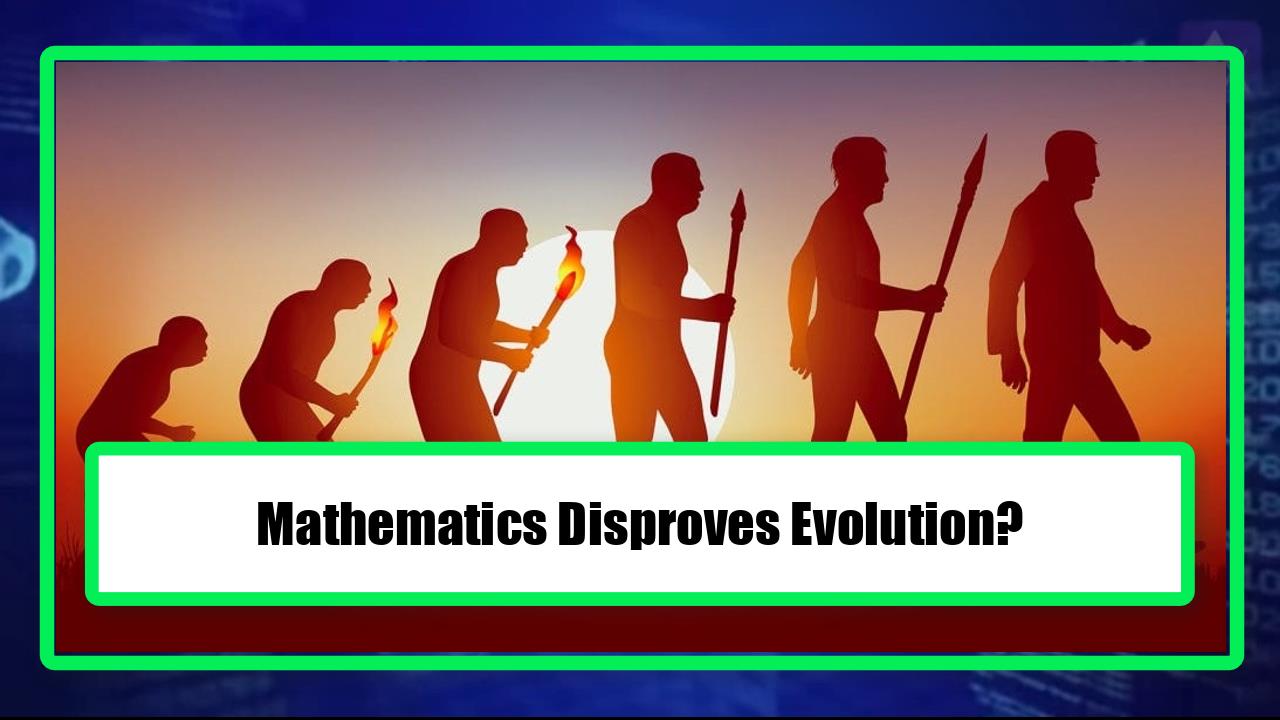Video:
Take our online poll:
AI Analysis:
Evolution, as a scientific theory, is not mathematically impossible. It's supported by substantial empirical evidence and is widely accepted in the scientific community. However, there are occasional misconceptions or arguments raised against evolution, often based on misunderstandings or misrepresentations of scientific principles. Here are points that debunk some common misconceptions:
1) Irreducible Complexity: Some claim that certain biological structures are too complex to have evolved gradually, asserting that all components must be present simultaneously for the system to function. However, evolutionary biologists have shown how complex structures can evolve through incremental steps, each providing some advantage, eventually leading to the current form.
2) Misunderstanding of Probability: Critics sometimes argue that the probability of complex organisms evolving by chance is exceedingly low. However, evolution doesn't rely solely on random chance; natural selection, genetic mutations, and other mechanisms drive the process. Evolution isn't purely random; it's a combination of random mutations and non-random selection.
3) Misrepresentation of the Second Law of Thermodynamics: Critics sometimes claim that evolution violates the Second Law of Thermodynamics, stating that systems tend towards disorder. However, this law refers to closed systems, while biological systems are open, receiving energy from the environment, allowing for increased complexity and organization.
4) Fossils and Transitional Forms: Skeptics may argue about the lack of transitional forms in the fossil record. However, numerous transitional fossils have been discovered, showing gradual changes between different species, supporting the evolutionary process.
5) Genetics and Molecular Evidence: Evidence from genetics, molecular biology, comparative anatomy, and embryology consistently supports the relatedness of species and common ancestry, providing strong evidence for evolution.
6) Observational Evidence: Evolution has been observed in action, such as the development of antibiotic resistance in bacteria, changes in the beaks of finches in response to environmental pressures, and other documented instances of evolutionary adaptation.
While critics may raise objections or misunderstandings, the scientific consensus overwhelmingly supports evolution as a robust and well-supported explanation for the diversity of life on Earth. Scientists continuously test, refine, and build upon evolutionary theory based on new evidence, further solidifying its validity in understanding the natural world.
The concept of "probability of evolution" doesn’t have a single formula since evolution itself isn't a random process that can be predicted with a probability value in the traditional sense. However, some aspects of evolutionary processes involve probabilities, especially when considering genetic mutations and their likelihood of occurring.
For instance, if we were to calculate the probability of a specific genetic mutation occurring in a given organism's genome, we might use the following simple formula:
Mutation = Number of mutations / Total number of possible mutations
This formula provides the probability of a specific mutation happening at a particular genetic locus. However, this doesn’t encapsulate the entirety of evolution but rather a small aspect of genetic change.
Evolution itself operates through natural selection, genetic variation, environmental pressures, and many other factors. It's not just a series of random events but a complex interplay of numerous factors acting over long periods.
In essence, while probabilities can be applied to specific elements within evolutionary processes (like the probability of a specific genetic mutation), the overall concept of evolution doesn’t have a single formula to predict or express its probability.
Chart:

References:
The Watchmaker Analogy DEBUNKED
Mathematical challenges to macroevolution
Mathematical Challenges To Evolution


Comments